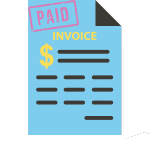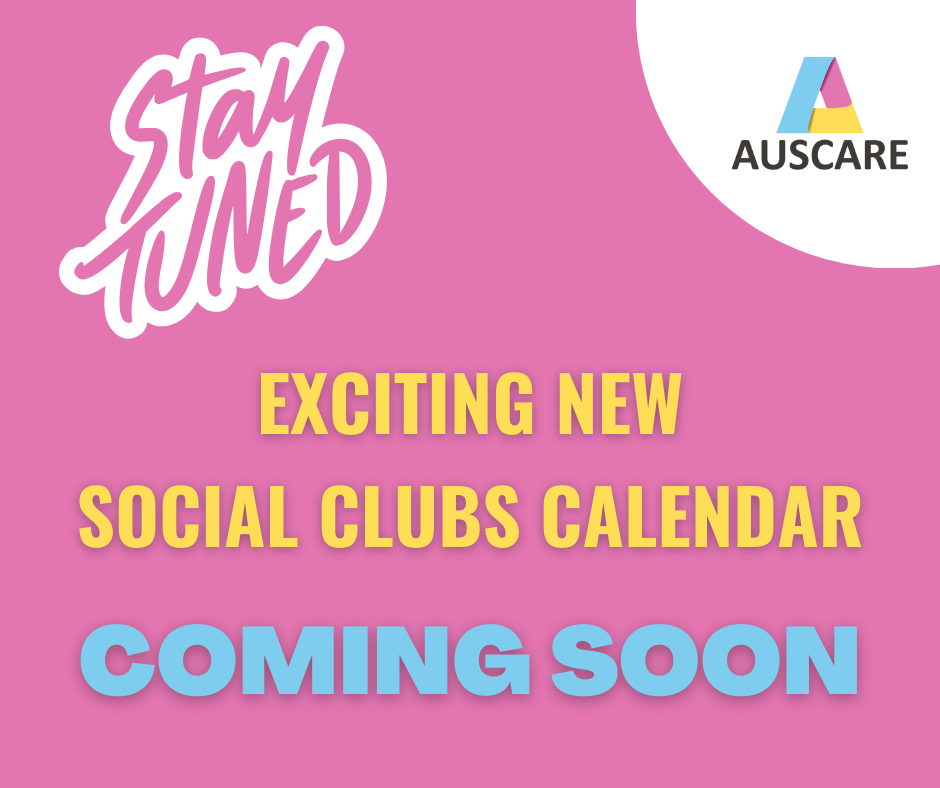Plan Management
Plan Management is a service that NDIS participants can access to assist with the management of their NDIS funding.
Plan Management involves managing the financial aspects of a NDIS Plan. This includes paying providers, tracking expenses and reconciling accounts.
Working with an Auscare Support Plan Manager can give you peace of mind, knowing that your NDIS funds are being managed responsibly and effectively.
Anyone with a NDIS Plan can request Plan Management and you can change your Plan Manager at any time.
Three Reasons to Choose Auscare Support Plan Management
More "you" time
Our Plan Managers can take care of all the admin and financial details of your NDIS Plan. Giving you more time to focus on what matters- YOU.
You have real choice and control
Tap into expert advice. Our Plan Managers have specialised knowledge and experience in managing NDIS funds. Plan Management gives you the option to access both registered and unregistered NDIS providers. Get the most out of your Plan with experienced professionals in your corner.
Zero cost to you
You have the right to a Plan Manager with no cost to you at all. It is 100% covered in your NDIS Plan.
You can rely on your Auscare Support Plan Manager to

PAY ALL PROVIDERS
Pay registered and unregistered providers to expand your choice of supports.
REIMBURSE QUICKLY
Receive invoices from your supports, draw down funds from the NDIS, and pay your supports quickly.

ACCEPT INVOICES EASILY
Receive invoices from yourself or your providers via email.
RESPOND TO YOUR CALLS
Our national team is available 9am to 5pm Monday to Friday.

REPORT REGULARLY
Send monthly statements showing your current expenditures and remaining balances.

BE FLEXIBLE
Help you enjoy the flexibility of self-management, minus the administrative burden.
“Auscare Support has always been extremely efficient and answer any questions that I may have.
The providers I use are also very happy with their accounts being paid in a timely manner.
I would have no hesitation in recommending Auscare Support to anyone.”
-Rebecca. B
FAQs
What is a Plan Manager?
A Plan Manager will help you organise the financial side of your NDIS plan, much like an bookkeeper. Their role is to ensure that funds are being spent in line with your budget.
The best Plan Managers are well qualified, either as accountants, bookkeepers or general accounts people, and also have experience in health or disability fields. They are expected to follow payment and price controls set by the NDIA.
Plan Management is funded by the NDIS. At your planning meeting, simply tell your NDIS Planner that you would like a Plan Manager to support you.
The Plan Manager’s role is to submit claims to the NDIS for supports and services after they have been provided, as well as pay the actual providers of those supports. This is done by claiming money from the right budget categories on the NDIA portal.
Receiving invoices from your providers should be made simple for all parties (whether it’s you passing these on to your Plan Manager, or the providers invoicing your Plan Manager directly.)
Paying providers should also be done as quickly as possible. Auscare Support currently pays providers within 3-4 days and is working towards 1-day turnaround.
Your Plan Manager needs to supply you with regular reports and statements and let you know if you’ve over- or underspent your budget, but their role isn’t to choose or develop service agreements with providers. (See Support Coordination).
If you’re using a Plan Manager, providers cannot charge more than the price limits outlined in the NDIS price guide.
How can I get funding for Plan Management?
Your NDIA Planner may ask you how you would like to manage your NDIS funding as part of your NDIS Plan or Plan Review meeting.
You might also have decided before your meeting that you would like funding for Plan Management and should therefore be prepared to let your NDIS planner or Local Area Coordinator know.
Plan Management falls under your Capacity Building – Improved Life Choices budget.
You can choose Plan Management for your full budget, or just part of it. (Other options are Self-Managed or NDIA Managed.)
For example, your Assistive Technology budget may be NDIA Managed.
Circumstances change and it’s not unusual to realise that too much or too little of your NDIS plan is Plan Managed. If you choose to have more or less of your budget plan managed, you can request a light touch review from the NDIS
You are also free to change Plan Managers throughout your plan and you don’t need to consult the NDIS.
Simply double check the service agreement you have with your current provider to understand their notice period, inform them of your intentions, and make the switch.
Should I be Self-Managed, NDIA-Managed, or Plan Managed?
When it comes to paying supports, you can either choose to self-manage your supports, ask the NDIS to pay on your behalf, or ask a Plan Manager to manage your payments.
These are referred to as:
- Self Managed
- Agency Managed
- Plan Managed
You can choose to be Plan Managed, or a combination of all three, in whatever combination you’d like.
When you are Self Managed, you can select from a range of registered and non-registered providers, which expands your choice of supports. Being Self Managed also means you are not governed by the NDIS price guide, so you can pay as much or as little for a service as you like.
While Self Management offers you maximum flexibility, the administration and reporting are onerous and not suited to everyone.
If you are Agency Managed, you are able to choose from a range of NDIA-registered providers but cannot use unregistered supports. You are also bound to follow the NDIS price guide. This means you can negotiate to pay less than the price guide, but never more.
Being Agency Managed offers you the greatest level of support. The NDIA will pay service providers on your behalf and manage the bookkeeping and reporting via their myplace portal, which you can view to track your spending.
If you’re Agency Managed, you might want to choose providers who are not registered with the NDIS. You could achieve this through having a portion of your budget Plan Managed.
This could give you access to registered and non-registered providers, but still offer you the convenience and support of someone else providing the bookkeeping and reporting services.
You could also Self Manage a portion of your plan to test out and build up your independence or to access supports not bound by the price guide.
The NDIS is all about exercising choice and control, so the key is to work with those who know and assist you to find the best combination of management for you.
What’s the difference between a Plan Manager and Support Coordinator?
Plan Management and Support Coordination are similar in that they both help you make the most of your NDIS budget, but they differ in some key respects.
Plan Managers are there to manage your NDIS finances – they’re like your own NDIS bookkeeper.
Invoices from your providers are received and paid by your Plan Manager. Plan Managers also claim your funds from the NDIS portal and will provide you with a snapshot of where you are at.
Your Support Coordinator will not handle the finances, but will assess your situation and goals, interpret your plan and work out what combination of providers are the best fit for your needs.
They will also help build connections with providers, community and government networks to help you live a more fulfilled life.
Both Plan Management and Support Coordination are funded by the NDIS and you need to ask for both in your planning meeting. With Support Coordination, you need to prove that it is ‘reasonable and necessary’ for you to build your capacity and meet your goals.
With Plan Management, there are no conditions for funding and there’s a good chance that you’ll receive it, if you ask for it in your planning meeting.
You can receive funding for Plan Management and Support Coordination in the one plan. Since your Plan Manager and Support Coordinator offer complementary services, they can work closely to ensure that most of your bases are covered in bringing your plan to life.
The great thing about Plan Managers is that they allow you to access both registered and non-registered providers, giving you choice and opportunity. They don’t, however, help you choose the right provider, that’s the role of your Support Coordinator.
Under which funding category does Plan Management fall?
There are three types of support budgets that may be funded as part of your NDIS plan. They are your:
- Core Supports Budget.
- Capacity Building Supports Budget.
- Capital Supports Budget.
Plan Management falls under number 2, Capacity Building Supports Budget, and under the sub-category of Improved Life Choices: Plan Management.
It is designed to help you manage your plan, funding and paying for services.
The current price guide lists the following:
14_033_0127_8_3 Plan Management And Financial Capacity Building – Set Up Costs $232.35. This is a one off set up cost issued per plan.
14_034_0127_8_3 Plan Management – Financial Administration $104.45. These are the monthly account keeping fees.
Your Capacity Building Supports Budget can only be used to purchase approved, individual supports. These might also include:
- Improved Living Arrangements: Support to help you find the right place to live and to keep it well maintained.
- Increased Social and Community Participation: development and training to increase your skills so you can participate in community, social and recreational activities.
- Finding and Keeping a Job: employment-related support, training and assessments that help you find and keep a job.
- Improved Relationships: support for developing positive behaviours and interactions with others.
- Improved Health and Wellbeing: exercise or diet advice to manage the impact of your disability. (Memberships are not funded as part of this).
- Improved Learning: training advice to help you move from school to further education.
- Improved Daily Living: Assessment, training or therapy to help increase your skills, independence and community participation.
Unlike Capacity Building, your Core Supports Budget is designed to assist you with everyday living. This can include assistance with daily needs around the house; consumables; participation in social and community activities and transportation.
Your Capital Supports Budget could include higher-cost assistive technology (lower cost normally falls under Core Support) and home modifications.
When it comes to funded supports, the non-NDIS-related assistance from family, friends and other community and government services do not fall under any of these support categories.
If I am being Plan Managed by Auscare Support, can I also use additional Auscare Support Services?
YES! Auscare Support actively encourages participants to excise their choice and control when choosing a provider for any NDIS supports or services.
Does the NDIS Cover Massage therapy, Chiropractic therapy or Acupuncture therapy?
Generally, the NDIS will only cover these alternative therapies if it is included in your plan. Massage, Chiropractic and Acupuncture are not included as standard therapies covered by the NDIS. Speak with your NDIS planner, LAC, or Support Coordinator about having this added to your plan.
Does the NDIS fund family members to provide supports and services?
Generally, the NDIS will only fund family members to provide supports and services in exceptional circumstances.
Does Auscare Support Provide Statements?
YES.
The Auscare Support Plan Management team can:
- Send you or your plan nominee a statement monthly by email
- Send via post if you don’t have access to email
- If requested, send a copy to your Support Coordinator
How can I ensure my invoices get paid?
When a participant has a plan manager assisting them, providers need to send invoices directly to the participant’s plan manager.
Invoices must include a valid ABN unless the provider is exempt from quoting an ABN.
The plan manager will process the payment through the myplace provider portal and pay the provider.
ALL Invoices should contain:
- provider’s business name
- provider’s ABN number.
- participant’s name
- NDIS number (if available)
- support item number – listed in the NDIS Support Catalogue (price guide link)
- amount and quantity claimed for each unit of the support provided – for example, $51.09 each x 2 units
- date/s the support was delivered.
- total invoice amount.
- GST component if applicable (most services are GST free).
Note:
- an invoice can only be for one participant but can include multiple supports.
- Invoices should contain payment information (Bank details).
- An invoice number that changes with each submission. Example INV-001, INV-002, INV-003
How long will it take for my providers to be paid?
Upon receipt of a correctly completed invoice, a provider will be paid within 7 business days.
What is the difference between registered and unregistered providers?
If your NDIS funding is NDIA-managed, you can only use NDIS registered providers to deliver your services. Participants who self-manage or have a plan manager to manage their NDIS plan funding can use both NDIS registered providers or unregistered providers. All providers (registered or unregistered) must adhere to the NDIS Code of Conduct.
How do I get reimbursed for services, supports or equipment I have purchased?
REIMBURSEMENTS & NDIS
What are reimbursements?
A reimbursement is the action of repaying someone. In the context of the NDIS, this occurs when you’ve paid for a support using your own money and want the NDIS to pay you back out of your NDIS budgets.
Which things can you be reimbursed for?
You can be reimbursed for most NDIS supports, as long as you have the funding in your NDIS plan for it and the NDIS deem it reasonable and necessary.
There are several reasons you might request a reimbursement, for example:
- When buying ‘off the shelf products’ such as continence items, that you need to purchase yourself at the checkout.
- When dealing with smaller service providers, such as a gardener, who prefer to be paid straight away rather than go through the formal NDIS invoicing process.
When sending through invoices for REIMB- Requirement needed on all Tax invoice
ALL Invoices should contain:
- provider’s NDIS business name
- provider’s Australian ABN number
- participant’s name and NDIS number
- support item number
- listed in the NDIS Support Catalogue
- amount and quantity claimed for each unit of the support provided.
- for example, $51.09 each x 2 units
- date/s the support was delivered.
- total invoice amount
- GST component if applicable (most services are GST free).
Note:
- an invoice can only be for one participant but can include multiple supports.
- Plan Managers must also include the ABN of the third-party provider.
- Auscare Support will also need your bank account details on file for all reimbursement to made.
How can I find the supports and services I require?
Auscare Support offers Support Coordination at Levels 1 – 3.
You can also contact:
- Your current Support Coordinator or LAC
- The NDIS registered provider page
For non-registered providers, we recommend:
- googling providers in your area and don’t forget to check their reviews
- ask for recommendations from other participants
Can my provider charge for Travel?
Participants who have funding for “community-based activities” can pay providers to transport them to those activities. The activities covered are:
- Assistance with social and community participation
- Improved living arrangements
- Increased social and community participation.
- Finding and keeping a job (except SLES)
- Improved relationships
- Improved learning
This is “activity-based transport”? So, what does this mean?
It means if your provider takes you out for “community participation” * they can now charge you for the travel as well as the support work time. This can be paid out of your core funding.
It means you are not out of pocket, and neither is your provider.
While there are no set prices for these things, the NDIS has suggested the following prices are “reasonable”:
- up to $1.00 a kilometre for a vehicle that is not modified for accessibility.
- up to $2.40 a kilometre for a vehicle that is modified for accessibility or a bus
- other forms of transport or associated costs up to the full amount, such as road tolls, parking, public transport fares.
Providers need to discuss worker travel time with you before commencing services and you must be agreeable in advance to the of claiming for associated costs.
Service Agreements should specify how and when providers will claim worker travel time.
Should Independent Support Workers have insurance?
- All Support Workers should hold appropriate insurance to protect both you and themselves in case of accident or incident. The minimum insurance held should be held is Public Liability Insurance and Professional Indemnity Insurance, with Personal Accident optional but advisable.
- If you employ an independent Support Worker, you can ask if they have taken out the above insurance before they begin supporting you.
What should I do if I suspect Fraudulent activity, transactions, or non-compliance?
If you suspect someone is doing the wrong thing with NDIS funds, you should report it. You can report suspected fraud or non-compliance by:
- calling the NDIS Fraud Reporting and Scams Helpline on 1800 650 717
- emailing [email protected].
Get in touch





 1800 940 515
1800 940 515

